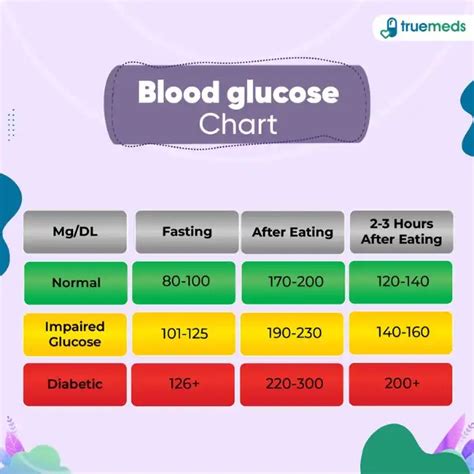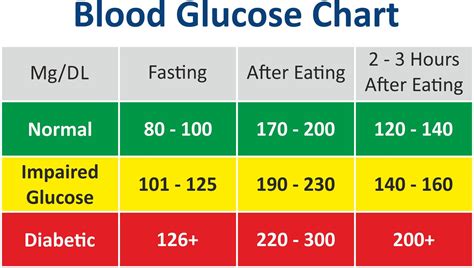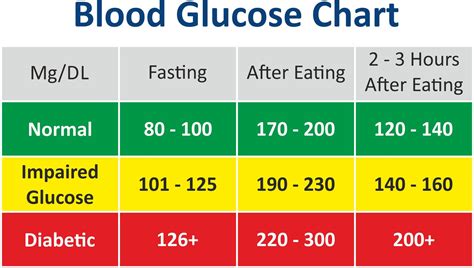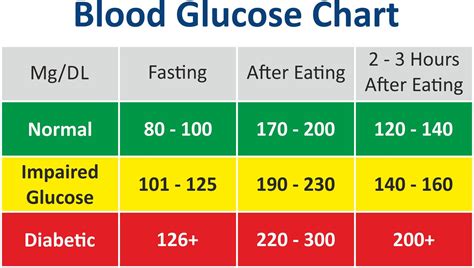Intro
Discover optimal blood glucose levels for a healthy life, including normal blood sugar ranges, glucose monitoring, and maintaining stable blood glucose control to prevent diabetes complications and promote overall well-being.
Maintaining optimal blood glucose levels is crucial for overall health and well-being. Blood glucose, also known as blood sugar, is the primary source of energy for the body's cells. When blood glucose levels are within a healthy range, the body functions properly, and the risk of chronic diseases is minimized. However, when blood glucose levels are consistently high or low, it can lead to a range of health problems, including diabetes, cardiovascular disease, and even death. In this article, we will delve into the importance of optimal blood glucose levels, the benefits of maintaining healthy blood glucose levels, and provide practical tips on how to achieve and maintain optimal blood glucose levels.
The importance of optimal blood glucose levels cannot be overstated. When blood glucose levels are within a healthy range, the body is able to function properly, and the risk of chronic diseases is minimized. Healthy blood glucose levels also help to prevent complications associated with diabetes, such as nerve damage, kidney disease, and blindness. Furthermore, maintaining optimal blood glucose levels can help to improve cognitive function, boost energy levels, and enhance overall quality of life. On the other hand, consistently high or low blood glucose levels can lead to a range of health problems, including fatigue, weakness, and increased risk of infections.
In addition to the physical benefits, maintaining optimal blood glucose levels can also have a significant impact on mental health and well-being. When blood glucose levels are within a healthy range, individuals are more likely to feel energized, focused, and motivated. This, in turn, can help to improve mood, reduce stress and anxiety, and enhance overall mental well-being. Moreover, maintaining healthy blood glucose levels can help to prevent conditions such as depression, anxiety, and cognitive impairment, which are often associated with chronic diseases like diabetes.
Understanding Blood Glucose Levels

To understand the importance of optimal blood glucose levels, it is essential to know how blood glucose levels are measured and what constitutes a healthy range. Blood glucose levels are typically measured using a blood glucose meter, which provides a reading of the amount of glucose present in the blood. The unit of measurement for blood glucose levels is milligrams per deciliter (mg/dL) or millimoles per liter (mmol/L). In general, a healthy blood glucose level is considered to be between 70 mg/dL and 140 mg/dL (3.9 mmol/L to 7.8 mmol/L). However, this range may vary depending on factors such as age, health status, and medication use.
Normal Blood Glucose Levels
Normal blood glucose levels are typically defined as follows: * Fasting blood glucose: 70-100 mg/dL (3.9-5.5 mmol/L) * Postprandial blood glucose (after eating): Less than 140 mg/dL (7.8 mmol/L) * Random blood glucose: Less than 140 mg/dL (7.8 mmol/L)Benefits of Optimal Blood Glucose Levels

Maintaining optimal blood glucose levels has numerous benefits for overall health and well-being. Some of the key benefits include:
- Improved insulin sensitivity: Optimal blood glucose levels help to improve insulin sensitivity, reducing the risk of developing type 2 diabetes and other insulin-related disorders.
- Reduced risk of chronic diseases: Maintaining healthy blood glucose levels can help to reduce the risk of chronic diseases, such as cardiovascular disease, kidney disease, and certain types of cancer.
- Enhanced cognitive function: Optimal blood glucose levels have been shown to improve cognitive function, including memory, attention, and processing speed.
- Boosted energy levels: Healthy blood glucose levels can help to improve energy levels, reducing fatigue and improving overall quality of life.
- Improved mental health: Maintaining optimal blood glucose levels can help to reduce the risk of mental health conditions, such as depression and anxiety.
Importance of Monitoring Blood Glucose Levels
Monitoring blood glucose levels is essential for maintaining optimal blood glucose levels. Regular monitoring can help to: * Identify patterns and trends: Regular monitoring can help to identify patterns and trends in blood glucose levels, allowing for adjustments to be made to diet, exercise, and medication regimens. * Detect hyperglycemia and hypoglycemia: Monitoring blood glucose levels can help to detect hyperglycemia (high blood sugar) and hypoglycemia (low blood sugar), allowing for prompt treatment and prevention of complications. * Adjust medication and treatment plans: Regular monitoring can help to adjust medication and treatment plans, ensuring that they are effective and safe.Strategies for Maintaining Optimal Blood Glucose Levels

Maintaining optimal blood glucose levels requires a comprehensive approach that incorporates healthy lifestyle habits, regular monitoring, and effective management of diabetes and other related conditions. Some strategies for maintaining optimal blood glucose levels include:
- Eating a balanced diet: A healthy diet that is rich in whole foods, fruits, vegetables, and whole grains can help to maintain optimal blood glucose levels.
- Engaging in regular physical activity: Regular physical activity, such as walking, running, or swimming, can help to improve insulin sensitivity and reduce the risk of chronic diseases.
- Practicing stress-reducing techniques: Stress can raise blood glucose levels, so practicing stress-reducing techniques, such as meditation or yoga, can help to maintain optimal blood glucose levels.
- Getting enough sleep: Getting enough sleep is essential for maintaining optimal blood glucose levels, as sleep deprivation can raise blood glucose levels and increase the risk of chronic diseases.
- Monitoring blood glucose levels regularly: Regular monitoring of blood glucose levels can help to identify patterns and trends, detect hyperglycemia and hypoglycemia, and adjust medication and treatment plans.
Role of Medication in Maintaining Optimal Blood Glucose Levels
Medication can play a crucial role in maintaining optimal blood glucose levels, particularly for individuals with diabetes or other related conditions. Some common medications used to manage blood glucose levels include: * Metformin: Metformin is a commonly used medication for type 2 diabetes that helps to improve insulin sensitivity and reduce glucose production in the liver. * Sulfonylureas: Sulfonylureas are a class of medications that stimulate the release of insulin from the pancreas, helping to lower blood glucose levels. * Insulin: Insulin is a hormone that helps to regulate blood glucose levels, and is often used to manage type 1 diabetes and other conditions.Common Challenges in Maintaining Optimal Blood Glucose Levels

Maintaining optimal blood glucose levels can be challenging, particularly for individuals with diabetes or other related conditions. Some common challenges include:
- Adhering to a healthy diet: Eating a healthy diet can be challenging, particularly for individuals with busy lifestyles or limited access to healthy food options.
- Engaging in regular physical activity: Regular physical activity can be challenging, particularly for individuals with mobility issues or other health conditions.
- Managing stress: Managing stress can be challenging, particularly for individuals with demanding work schedules or family responsibilities.
- Accessing affordable healthcare: Accessing affordable healthcare can be challenging, particularly for individuals with limited financial resources or lack of health insurance.
Overcoming Common Challenges
Overcoming common challenges in maintaining optimal blood glucose levels requires a comprehensive approach that incorporates healthy lifestyle habits, regular monitoring, and effective management of diabetes and other related conditions. Some strategies for overcoming common challenges include: * Seeking support from healthcare professionals: Healthcare professionals can provide guidance and support in maintaining optimal blood glucose levels, including developing personalized treatment plans and providing education on healthy lifestyle habits. * Joining a support group: Joining a support group can provide individuals with a sense of community and connection, helping to overcome common challenges and maintain optimal blood glucose levels. * Using technology: Technology, such as mobile apps and online resources, can provide individuals with tools and resources to maintain optimal blood glucose levels, including tracking blood glucose levels, monitoring medication adherence, and accessing healthy recipes and meal plans.Conclusion and Future Directions

In conclusion, maintaining optimal blood glucose levels is crucial for overall health and well-being. By understanding the importance of optimal blood glucose levels, incorporating healthy lifestyle habits, and effectively managing diabetes and other related conditions, individuals can reduce the risk of chronic diseases and improve overall quality of life. Future directions in maintaining optimal blood glucose levels include the development of new technologies and treatments, such as artificial pancreas systems and stem cell therapies, which hold promise for improving the management of diabetes and other related conditions.
Final Thoughts
In final thoughts, maintaining optimal blood glucose levels requires a comprehensive approach that incorporates healthy lifestyle habits, regular monitoring, and effective management of diabetes and other related conditions. By working together with healthcare professionals, individuals can develop personalized treatment plans that meet their unique needs and goals, helping to maintain optimal blood glucose levels and improve overall health and well-being.What are the normal blood glucose levels?
+Normal blood glucose levels are typically defined as follows: Fasting blood glucose: 70-100 mg/dL (3.9-5.5 mmol/L), Postprandial blood glucose (after eating): Less than 140 mg/dL (7.8 mmol/L), Random blood glucose: Less than 140 mg/dL (7.8 mmol/L).
How can I maintain optimal blood glucose levels?
+Maintaining optimal blood glucose levels requires a comprehensive approach that incorporates healthy lifestyle habits, regular monitoring, and effective management of diabetes and other related conditions. Some strategies for maintaining optimal blood glucose levels include eating a balanced diet, engaging in regular physical activity, practicing stress-reducing techniques, getting enough sleep, and monitoring blood glucose levels regularly.
What are the benefits of maintaining optimal blood glucose levels?
+Maintaining optimal blood glucose levels has numerous benefits for overall health and well-being, including improved insulin sensitivity, reduced risk of chronic diseases, enhanced cognitive function, boosted energy levels, and improved mental health.
We hope this article has provided you with a comprehensive understanding of the importance of optimal blood glucose levels and how to maintain them. If you have any further questions or would like to share your experiences, please don't hesitate to comment below. Additionally, if you found this article helpful, please share it with your friends and family who may benefit from this information. Together, we can work towards maintaining optimal blood glucose levels and improving overall health and well-being.
